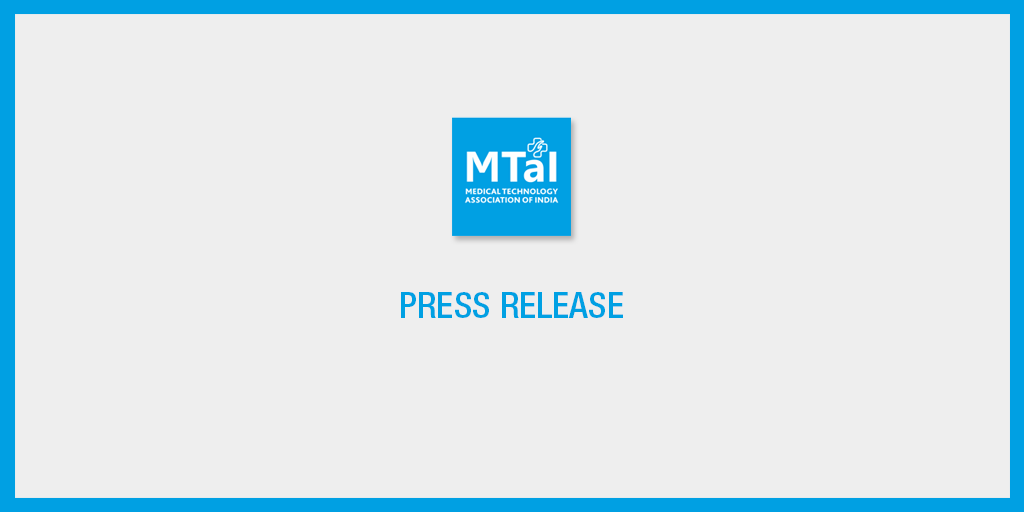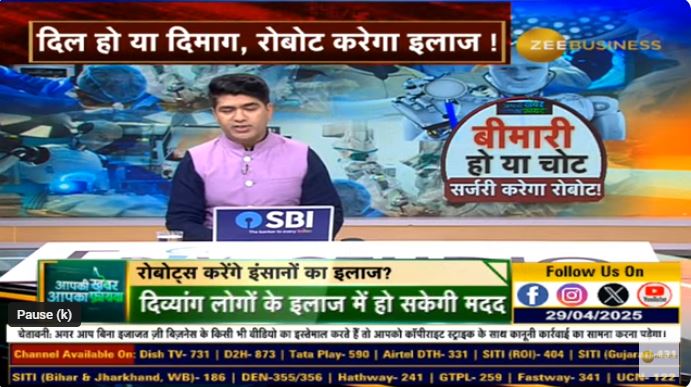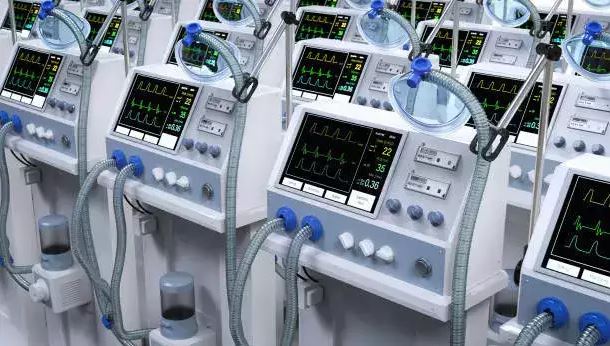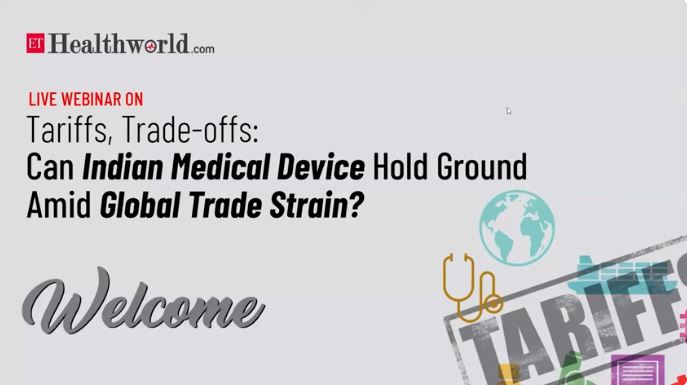Govt Backs MedTech as a Strategic Sector, Aims for $30 Billion Market by 2030
India to Expand Global MedTech Share to 10-12% by 2030 – Union Minister
Global and Domestic Leaders Convene to Drive Investments, Policy Reforms &
Healthcare Innovation
New Delhi, January 30, 2025 – MedTekon 2025, a Premier Dialogue on MedTech and the flagship event of the Medical Technology Association of India (MTaI), convened policymakers, global dignitaries, investors, and healthcare leaders at Taj Palace, New Delhi. Focused on Investments, Reforms, and Synergies, the event set the agenda for policy acceleration, investment growth, and technological advancements in India’s MedTech sector.
The event was graced by Chief Guest Hon’ble Minister Smt. Anupriya Patel, Union Minister of State for Health & Family Welfare and Chemicals & Fertilizers, and Guest of Honour Dr. V. K. Paul, Member, NITI Aayog, who underscored the critical role of medical technology in shaping India’s healthcare future.
While addressing the gathering, Hon’ble Minister Smt. Anupriya Patel, Union Minister of State for Health & Family Welfare and Chemicals & Fertilizers said, “It is an honour to inaugurate MedTekon 2025, a key platform uniting industry leaders, policymakers, and healthcare stakeholders to shape the future of India’s MedTech sector. With the industry poised to double its market size to $30 billion by 2030 and expand its global share from 1.65% to 10-12%, India is rapidly emerging as a MedTech powerhouse. Our exports reached $3.8 billion last year, reflecting the sector’s growing manufacturing strength and global competitiveness. As we drive this momentum forward, collaborative efforts in innovation, investment, and policy reforms will be crucial to positioning India as a leader in affordable, high-quality medical technology.”
In his remarks during the session on Catalysing Foreign & Domestic Investments in MedTech, Dr. V. K. Paul, Member, Niti Aayog said, “MedTekon 2025 serves as a crucial platform to expand India’s global footprint, foster innovation, and strengthen domestic manufacturing. With rising demand for medical devices, India must position itself as a global MedTech leader.
As healthcare spending grows, public health insurance now covers 67 crore people, but private insurance must evolve to improve access to advanced care. The industry should collaborate with IRDAI to develop affordable, tech-driven insurance solutions.
India’s 4,000+ health-tech startups need greater investment, regulatory support, and structured incubation to scale globally. Additionally, harmonizing regulatory standards with global benchmarks is vital for investor confidence and sector growth. By focusing on innovation, investment, and policy stability, we can cement India’s role as a leader in affordable, high-quality medical technology.”
Mr Pavan Choudary, Chairman, MTaI, emphasized the need for investment-friendly policies, regulatory coherence, and a robust MedTech infrastructure to support India’s growing healthcare needs and said, “At MTaI, we believe that sharp advocacy stems from thoughtful deliberation, and MedTekon 2025 embodies this commitment. With membership growing from 42 to 57 companies, we are now India’s largest MedTech association of global companies, reflecting the industry’s dedication to fair, equitable, and progressive growth.
In an era of geopolitical uncertainty, MedTech stands as a stabilizing force, fostering global collaboration even in turbulent times. The pandemic reinforced this strength, with technology transfers, open-source innovations, and resilient supply chains ensuring medical access across borders. But MedTech is more than just healthcare—it is a keystone sector critical to national security, making it imperative to forge strategic alliances with like-minded nations.”
In response to the issue of de-humanization, Mr. Choudary highlighted the rise of communities like Hikikomori, who prefer technology-driven interactions over human engagement due to the fear of judgment and a growing sense of social withdrawal driven by modern individualistic lifestyles. He emphasized, “technology, in such cases, can serve as a caregiver, offering personalized attention without human bias or error, bridging the gap for those who struggle with traditional social interactions.”
Today, global trade commissioners, pharma leaders, investors, and policymakers have gathered at MedTekon, reaffirming its role as a bridge-builder for industry and policy. A successful MedTekon is one where dialogues translate into action, where collaboration fuels innovation, investment, and global partnerships to advance healthcare access and security for all.”
The event featured a distinguished lineup of Indian and global MedTech leaders. Key speakers included Dr. O.P. Yadava (CEO, National Heart Institute), Mr. Aseem Sahu (Deputy Drugs Controller, CDSCO), Padmashree Dr. Kameshwar Prasad (AIIMS & Fortis Healthcare), Dr. Pavan Gurha (Head of Department, Anaesthesiology, Batra Hospital), Mr. Sanjay Bhutani (MD, Bausch & Lomb India & SAARC), Mr. Aman Rishi (VP & GM, Stryker India), Mr. Atul Grover (Managing Director, India & South Asia, Becton Dickinson), Mr. Parmeshwaran Nair (Country Leader, SEA Region and India, Edwards Lifesciences), Mr. Virendra Pareek (Country Head & Director, LifeScan India), Mr. Rohit Mahajan (Vice President & General Manager, Intuitive India), Mr. Shishir Aggarwal (President & Managing Director, Terumo India), Mr. Aditya Banerjee (Managing Director, B. Braun), Mr. Ajay Bijani (Country Head, Baxter India), Mr. Mandeep Singh Kumar (VP & MD, Medtronic India), Mr. Arun Kaushik (Managing Director, South Asia & APAC Leader, Interventional Access, Teleflex), Mr. Kaustav Banerjee (CEO, Alkem MedTech Pvt. Ltd.), and Mr. Amar Vyas (Country Franchise Head-Surgical & Country Manager, Alcon India).
Foreign dignitaries included Dr. Stephan Hesselmann (Minister Counsellor, German Embassy), Estelle David (Trade & Investment Commissioner, France Embassy), Nico Schiettekatte (Counsellor for Health & Welfare, Embassy of the Netherlands), and Anna Shotbolt (Deputy Trade Commissioner, South Asia, British High Commission).
A major focus area was catalysing foreign and domestic investments, where stakeholders explored India’s potential as a global MedTech manufacturing and R&D hub. In the discussion on hospital technology integration, experts delved into the impact of AI, robotics, and digital health solutions on improving patient outcomes. Another key session on reimbursement policies examined strategies to expand insurance frameworks and ensure universal access to advanced medical technologies. The regulatory panel addressed harmonizing standards, reducing non-tariff barriers, and enhancing compliance mechanisms to ease MedTech adoption in India. The final session highlighted ethical marketing practices in MedTech and the need for skill development programs to create a future-ready workforce capable of leveraging next-generation medical innovations.
MedTekon 2025 reinforced India’s position as a key player in global healthcare innovation. With its focus on investment-led growth, regulatory advancements, and technological breakthroughs, the event set an agenda and decisive path for the future of MedTech in India.
About Medical Technology Association of India (MTaI):
Medical Technology Association of India (MTaI) is a leading association in the MedTech space in India and comprises of a wide spectrum of research-based medical technology companies with global experience in innovation and manufacturing.
MTaI’s main aim is to improve access to quality healthcare for the patient and maintain viability for the industry. By doing so, it aspires to find a space for the MedTech companies commensurate to their contribution to Healthcare in India.
MTaI is recognized as a veritable think tank in the Healthcare space and collaborates with the government, healthcare professionals and other stakeholders to bring cutting edge research and recommendations to the fore. To know more, visit: www.mtaiindia.org
Join us on social media
Facebook: @mtaiorg | Twitter: @mtaiorg | LinkedIn: @mtai-india




